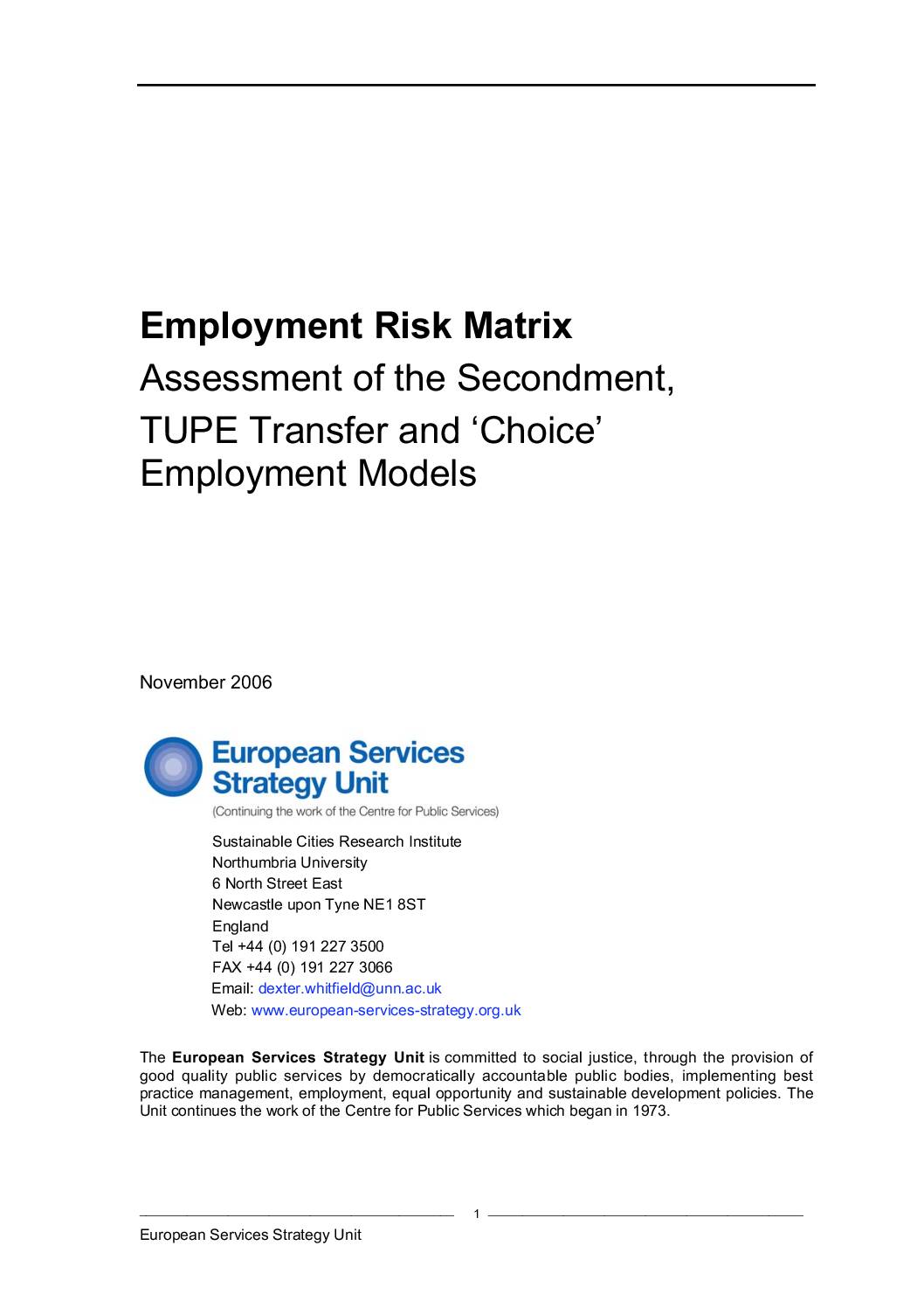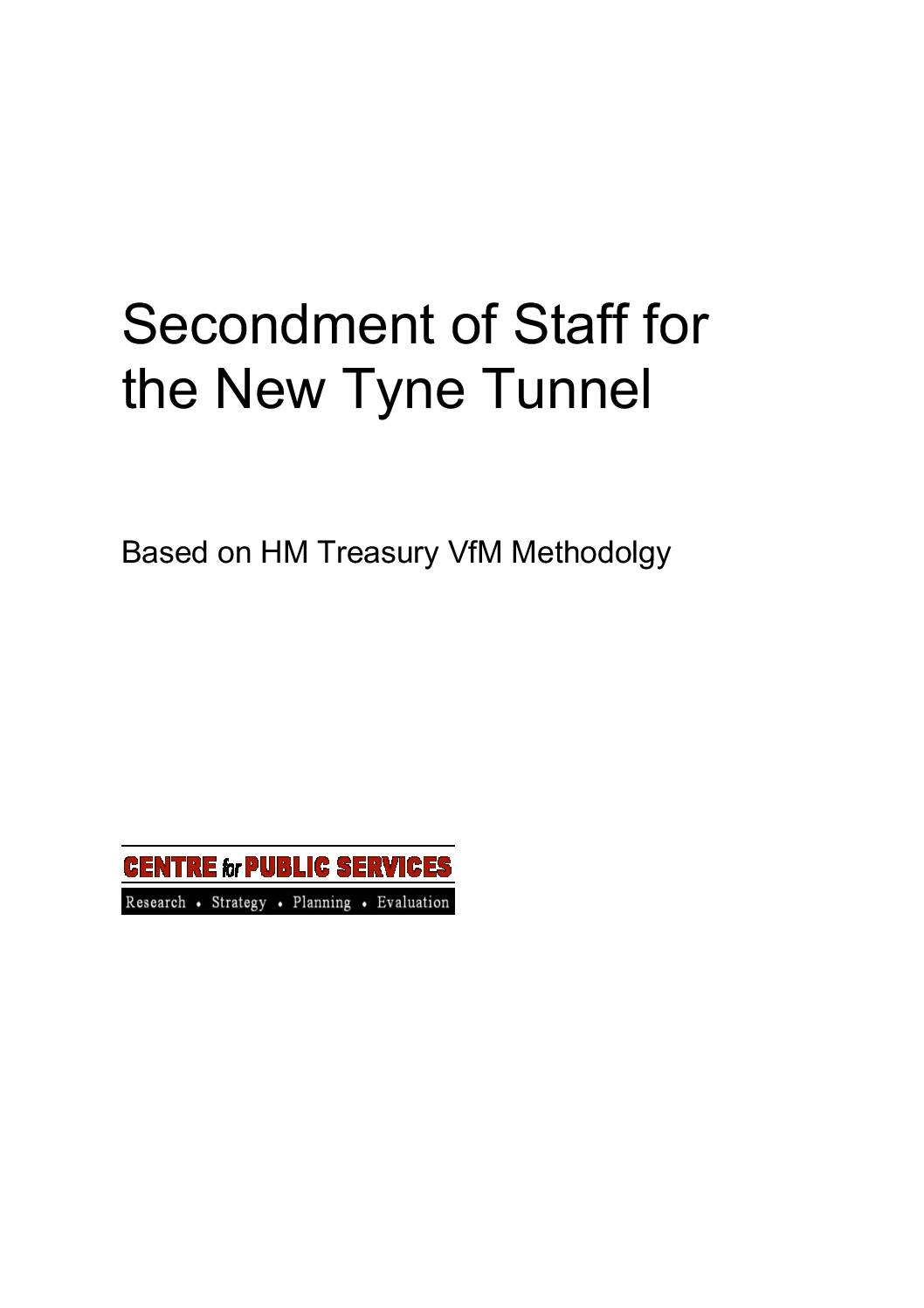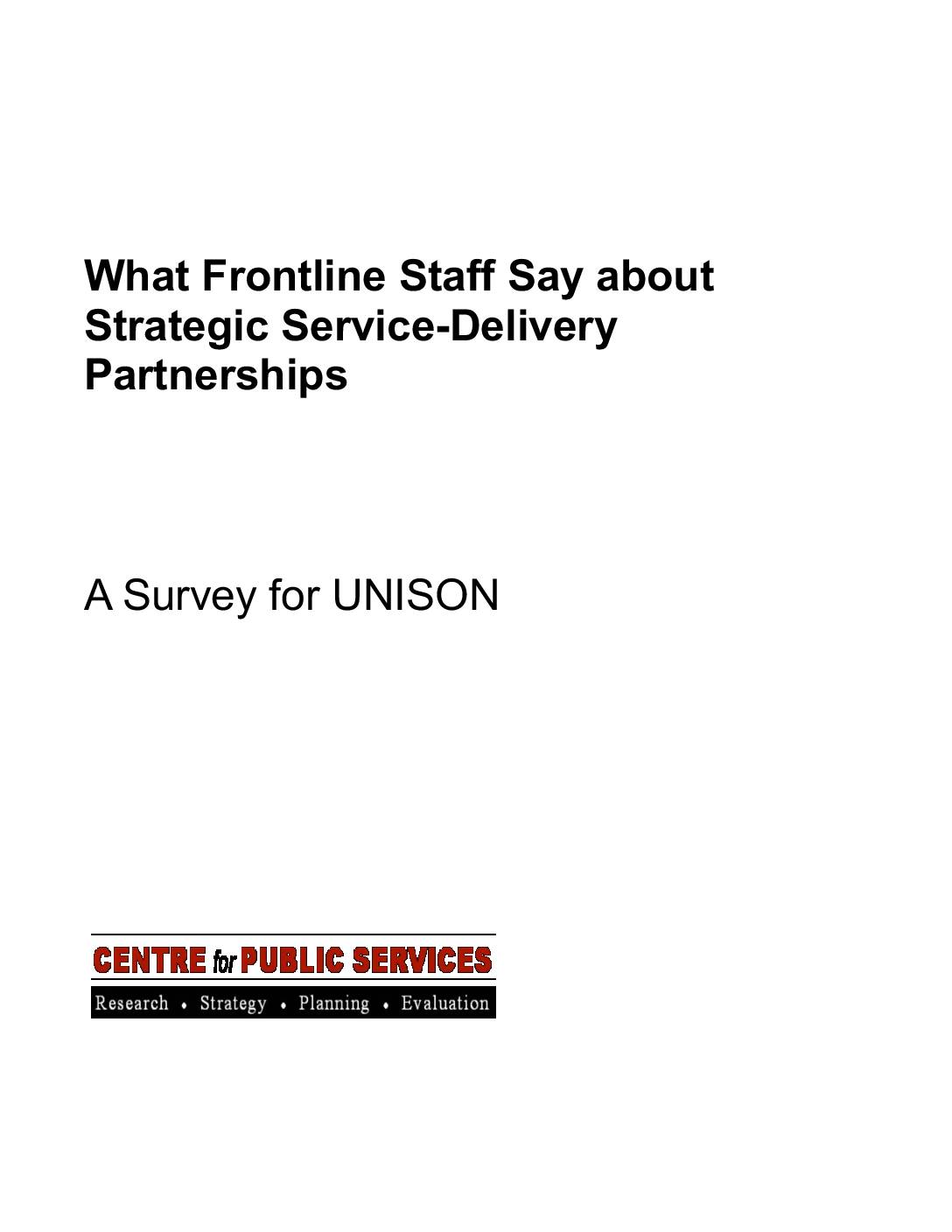The effect of outsourcing and the procurement and commissioning process on jobs, terms and conditions.
Employment Impacts
Published on 26th April 2005. Last updated 29th May 2017.
-

Employment Risk Matrix
There are basically three employment models if outsourcing or transfer is proposed: 1) Secondment in which staff remain employed by the public sector. 2) Transfer to a new employer under the TUPE regulations 3) A ‘choice’ model promoted by some private contractors which is a mix of secondment and transfer. The European Services Strategy Unit…
-

Secondment of Staff for New Tyne Tunnel
The case for seconding the 95 staff employed on the existing Tyne Tunnel rather than transferring them to the operator of the New Tunnel was set in a detailed report for Newcastle UNISON (see also How to Exclude Support Services from Building Schools for the Future and PFI Projects report in 2005 news section). However,…
-

The Employment and Financial Impact of Market Testing in the NHS in Northern Ireland
This report examines the employment and financial impact of competitive tendering in the NHS in Northern Ireland between 19988 and 1993. The research findings are combined with the findings of the Northern Ireland Equal Opportunities Commission investigation into competitive tendering in health and education services (NIEOC, 1996).
-

What Frontline Staff Say about Strategic Service-Delivery Partnerships
Strategic Service Delivery Partnerships (SSPs) have been heralded as having the potential to revolutionise service delivery and playing a key role in the government’s modernisation agenda of reform for public services. This report examines these claims, testing them against evidence gathered from frontline staff whose employment had passed into the hands of the private sector…
-

Competition, Cuts and Contractors: Lessons for trade unionists from three flagship London Boroughs, 1992
Detailed study of outsourcing and commercialisation in Westminster, Wandsworth and Kensington and Chelsea for NALGO, including contracts, costs, job impacts and the effect on services. Identifies the lessons for trade union strategies and wider policy implications (58 pages).

